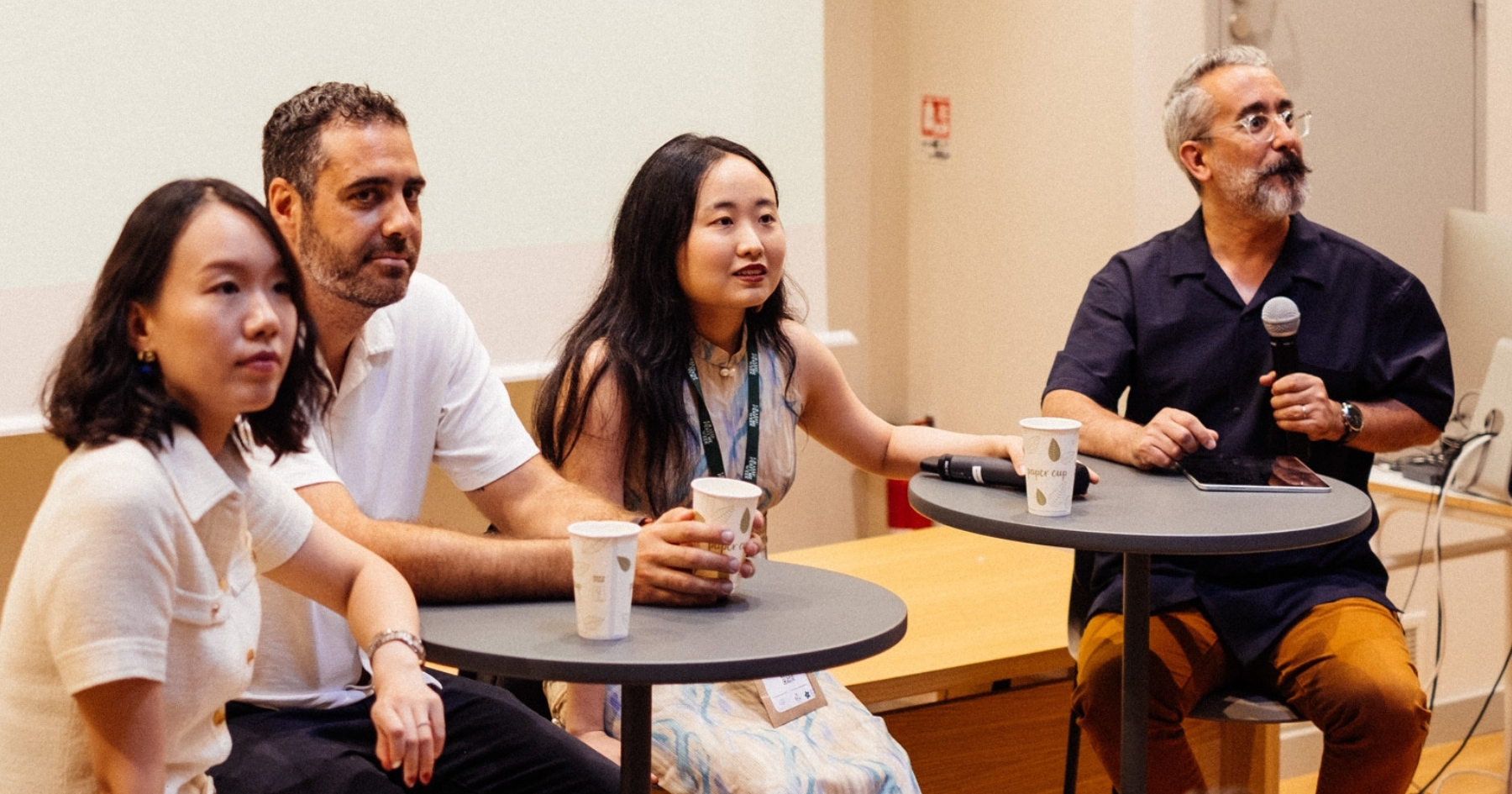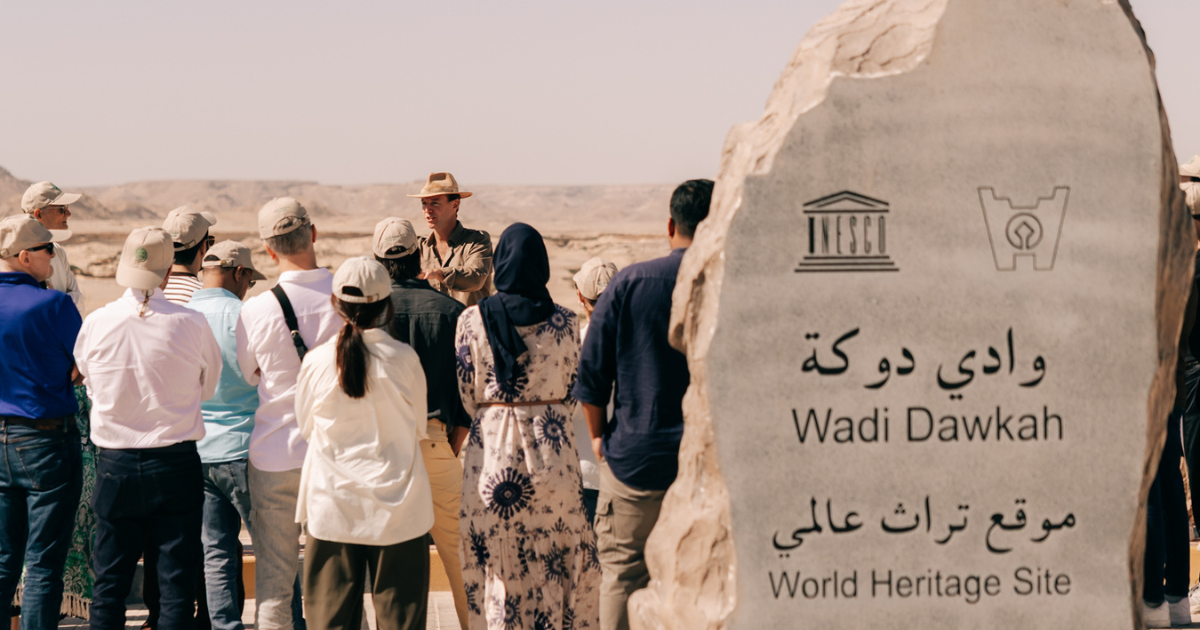Cette publication est également disponible en :
Français
Founded in 2006, Van Aroma has specialized in Indonesian raw materials, catering to both the food and perfume industries. Aayush Tekriwal, CEO and Managing Director of the company and son of one of its founders, reflects on its history, evolution, and ambitions.
What makes Indonesia a significant hub for the trade of natural materials?
Throughout its history, the country has been renowned for exporting herbs and spices such as clove, nutmeg, betel nut, ginger, turmeric, chili, and more, which have been utilized in various industries including condiments, oils, and resins. However, by the late 1970s, this trade lacked regulation and was shrouded in secrecy regarding essential oil production, supply chains, and stakeholders. Speculation and price fixing were common. An incident changed everything in 1976: a Western customer paid a significant sum for a container of patchouli oil from Indonesia, only to receive drums filled with water. This scandal prompted the establishment of the International Federation of Essential Oils and Aroma Trades (IFEAT), marking a significant turning point in the industry.
When did things start for Van Aroma?
My father was one of the key founders of the company almost two decades ago, in 2006. He had two partners, and at first they were mainly exporting raw spices. But he wanted to venture into essential oils because he was fascinated by the fragrance industry. At the time there was a strong need for trustworthy and transparent producers committed to full traceability. He managed to build a great reputation in that business and started out with only one product: nutmeg oil. Van Aroma quickly gained recognition, because we were one of the key suppliers to major clients like Pepsi and Coca-Cola. Over the years, our reputation grew, attracting more customers and leading us to diversify our product offerings. Presently, our business operations are centered in Europe, America, and Latin America.
How many products do you have in your portfolio now?
We engage with over 120 different plant varieties, but a significant portion of our revenue, ranging from 85 % to 90 %, stems from just six botanicals: clove, nutmeg, citronella, vetiver, cocoa, and, notably, patchouli, as we are known for being the leader in patchouli oil production, as we do over 65 % of the global volume since 2012. Moreover, our operations have expanded to encompass the production of various naturals from Indonesia, including kananga, turmeric, ginger, and black pepper, along with extracts and essential oil derivatives such as Eugenol derivatives. This evolution positions us as a comprehensive supplier, offering a wide array of ingredients sourced directly from Indonesia.
You mean that your role is no longer that of simple trader?
Exactly, 100% of what we sell is produced or processed by Van Aroma. Even though we do work with thousands of farmers and distillers, all materials undergo processing or homogenization before reaching customers. This allows us to ensure consistent quality and pricing, as we oversee the standardization process. Our customers value consistency in batches from one order to the next, and we can deliver this across our extensive range of 120 plants, including the rare ones.
How do you achieve that?
Contrary to common practice, our company employs only two or three salespeople, whereas we boast a team of 25 to 30 dedicated purchasing professionals who interact with farmers and distillers daily across the islands of Indonesia. We have a very strong supplier engagement. Despite operating within a diverse industry landscape, we understand that each client has a unique need. Whether serving clients in the flavor and fragrance, soap, candle, or pharmaceutical industries, we tailor our approach and product offerings accordingly. This customer-centric philosophy sets Van Aroma apart from other producers in Indonesia. By prioritizing customer needs and maintaining strong supplier engagement, we ensure a consistent supply chain, providing customers with the assurance they seek.
How do you approach the perfume world and how do you work with perfumers?
Many producers overlook the importance of creativity. We make an active effort to engage with perfumers and formulators to understand what kind of briefs they receive, and the specific ingredients they seek. Our long-term growth depends on it. We invest significant time in crafting unique blends or fractions of raw materials, employing techniques like molecular distillation and prioritizing allergen-free products. Extensive research and development efforts are dedicated to discovering new molecules or variants of existing products. We distribute samples worldwide to creators, encouraging experimentation and the development of different blends, soliciting feedback and suggestions for improvements. It’s very collaborative. There’s an increasing need for formulators to create something unique, so we work with fragrance houses to produce complex ingredients that can be accessible on an exclusive basis. This collaborative effort not only sets perfumes apart but also enhances their appeal, sometimes surpassing the intricacies of complex formulation work.
What are the most challenging botanicals to work with?
I would say that for us, Patchouli is paramount. Following closely behind are Vetiver, cocoa, and nutmeg. Patchouli presents complexities on several fronts. Firstly, there’s the challenge of identifying adulterants or contaminants. Given the evolving regulatory landscape in our industry, there’s a heightened focus on potentially harmful substances like Phthalates, DEP, DEHP, DBP, and glycols. These are notoriously difficult to detect. Consequently, we’ve developed rigorous analysis methods to ensure that any product we treat is free from contamination. This is crucial because our customers face regulatory challenges that they must address.
Moreover, Patchouli oil itself is inherently complex. Freshly extracted, it is not a very pleasant oil to smell. It requires proper storage and aging to develop its characteristic aroma. While regulations necessitate the declaration of an expiry date, Patchouli oil essentially defies expiration. Patchouli oil is like wine, it improves over the years, so we have done researches to understand the aging process of Patchouli, and we’re actively exploring methods to rapidly mature it.
Considering the cultural diversity of your customers, do you identify differences in taste from one country to another?
Indeed, certain demands are region-specific. For instance, in India, there’s a significant market for ingredients like gurjun balsam and benzoin, the latter being not only used in fine fragrances but also in chewing tobacco. Nutmeg oil serves as another example; while it’s utilized in small volumes in the fragrance industry, its largest consumers are cola beverage companies.
When it comes to Patchouli, preferences vary; in the Middle East and Western Europe, there’s a preference for patchouli heart fraction over regular patchouli oil due to its embodiment of key notes and compatibility with fragrances. That being said, despite these regional tastes, we’ve observed a gradual reduction in uniqueness over the years. Fragrance ingredients are becoming increasingly globalized, with top sellers from the fragrance industry distributed worldwide. As a result, the distinct requirements of different markets are diminishing over time.
Nowadays, customers are more and more concerned with sustainability and climate change, how do you address that?
We have a long-standing commitment to sustainable commercialization and industrialization, so this paradigm shift is very welcome. Climate was a lot more predictable a few decades back. Nowadays it is becoming harder to pinpoint a plantation or harvest cycle. The predictability in the supply chain has reduced drastically. This has profound effects on pricing and amplifies concerns about global warming. But we need to do things correctly. Some companies engage in greenwashing, showcasing sustainability certifications on social media while simultaneously purchasing larger volumes of uncertified, cheap products without regard for the environment or consumers. At Van Aroma, we do not believe in unsustainable capitalism and greenwashing practices, and we invest considerable time, effort, and resources into genuine sustainability initiatives.
Van Aroma is a full-time member of the UEBT, the Union for Ethical Biotrade, we are on SEDEX, the Supplier Ethical Data Exchange, a reporting systems that provides transparency, and we received the silver EcoVadis award for exemplary sustainability efforts in 2023. For transparency, we report our carbon footprint on CDP, the Carbon Disclosure Project. But ticking the checkboxes is not enough, therefore, we focus on giving back to the communities at the source of our patchouli and clove supply chains. As leaders in these fields, we’re deeply involved in initiatives that provide education, seedlings, and agricultural know-how through collaborations with Symrise and Firmenich, as well as through two YouTube channels: Nilampedia, a patchouli encyclopedia and Cengkehpedia, a clove encyclopedia. These platforms address various topics, including challenges faced by farmers, distillers, and stakeholders, and offer solutions such as eliminating pesticides and agrochemicals and providing basic financial management education. These initiatives, which began during the COVID-19 pandemic when in-person training was impractical, have since flourished, serving as successful models for community engagement and sustainable development.
What’s the next challenge for Van Aroma?
We are looking forward to continue to develop our offer of Indonesian products. We want to be the one-stop shop for local naturals as well as bioderived products. While our primary focus has traditionally been on serving the flavor and fragrance industry, we are progressively diversifying our offerings year by year. We are now venturing into farmer ingredient products used in textiles, rubber, and other sectors.
Historically, less developed economies served as the primary sources of raw materials, with more developed economies specializing in derivative production. As Indonesia rapidly develops, our focus is on derivatization of Indonesian origin naturals: we want to bring cutting-edge technological advancements from around the globe to Indonesia while also leading the way in the development of new technologies. The aim is to develop fresh derivatives within Indonesia, showcasing innovation and fostering long-term growth.







Comments